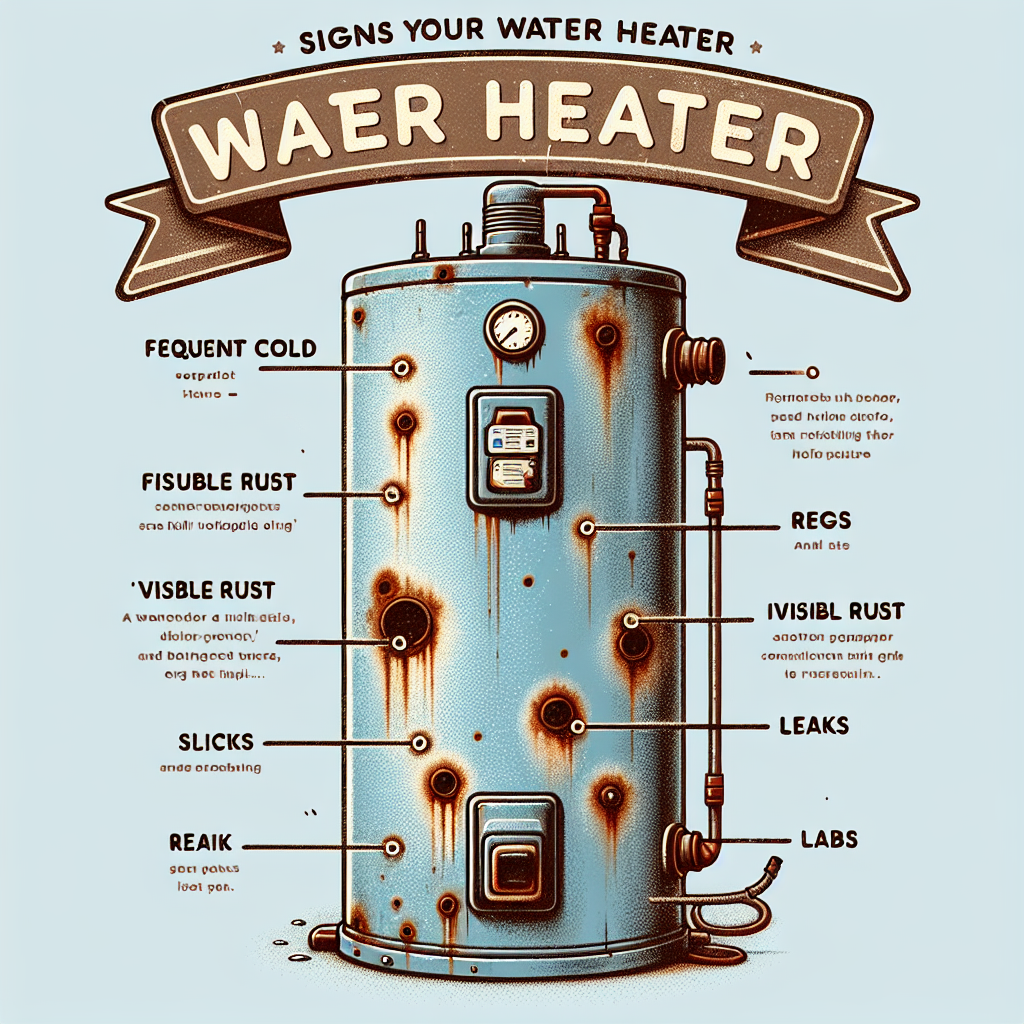When it comes to home maintenance, many homeowners often overlook the importance of the water heater. This crucial appliance runs silently in the background, delivering hot water for everything from showers to laundry. However, like all machines, it has its lifespan. If you’re starting to experience issues, it may be time to consider a replacement. Here are the signs that your water heater needs replacing, along with some helpful tips to guide you through the process.
1. Age Matters: Is Your Water Heater Still in Its Prime?
Most water heaters have a lifespan of about 8 to 12 years. If your heater has been in service for longer than that, it might be time for an upgrade. To find out the age of your water heater, check the manufacturer’s label or the serial number. The first two digits often indicate the year of manufacture. If you’re nearing this limit, it’s wise to begin researching replacement options before an unexpected breakdown occurs.
Recommended Action:
Keep a record of your home appliances’ ages, so you can proactively plan for replacements.
2. Inconsistent Water Temperature: A Red Flag
Are you noticing fluctuations in your water temperature? Perhaps it’s lukewarm when you expect it to be hot, or maybe you’re finding that it’s taking longer to heat up. These inconsistent temperatures can signify that your water heater is struggling to maintain its efficiency. While a simple thermostat adjustment might help, persistent issues often point towards a need for a new unit.
Recommended Action:
Perform regular checks on your water heater’s thermostat and consider consulting a professional if problems persist.
3. Discolored Water: A Warning Sign
If your hot water has a rusty or discolored appearance, it may indicate corrosion inside the tank. This is more than just unsightly—it’s a sign that your water heater’s internal components may be breaking down, which can lead to leaks or complete failure in the near future. Safety and cleanliness should always come first; discolored water can also affect the quality of your dishes and laundry.
Recommended Action:
Conduct a quick visual inspection of your water. If discolored, discontinue use and seek professional advice.
4. Strange Noises: Listen Carefully
Is your water heater emitting loud noises like popping, rumbling, or hissing? These sounds are often a sign of sediment buildup at the bottom of the tank. While it can be flushed to restore efficiency, excessive noise can indicate that your heater is laboring hard to perform. If the noise doesn’t subside after maintenance, it could be time for a new unit.
Recommended Action:
Schedule regular maintenance to flush your water heater, but don’t ignore alarming noises.
5. Leaks and Dampness: A Serious Concern
One of the most obvious signs that your water heater may need replacing is the presence of water pooling around the base. Leaks can occur due to corrosion, faulty connections, or worn-out valves. Traditional tank heaters that start to leak often mean trouble, as they can leak more extensively over time and cause damage to your home.
Recommended Action:
Immediately address any leaks—consider turning off the water supply and contacting a plumber for assessment.
6. Increased Energy Bills: Monitor Your Expenditure
If you’ve noticed a significant hike in your utility bills lately, your water heater might be the culprit. An inefficient water heater requires more energy to heat water, leading to higher costs. By replacing an old, inefficient unit with a new energy-efficient model, you can save money on your bills and help the environment at the same time.
Recommended Action:
Keep a log of your utility expenses and evaluate trends over several months.
Conclusion: Invest in Your Comfort
Being vigilant and proactive about your water heater can save you both money and the annoyance of unexpected cold showers. Always consult with a licensed plumber to assess the condition of your water heater if any of these signs resonate with you. Investing in a new model not only enhances your home’s comfort level but can also improve energy efficiency, ultimately saving you money in the long run.
Keeping your hot water flowing smoothly is essential for a comfortable home. Stay informed and attentive, and you won’t be left in the cold when it matters most!


